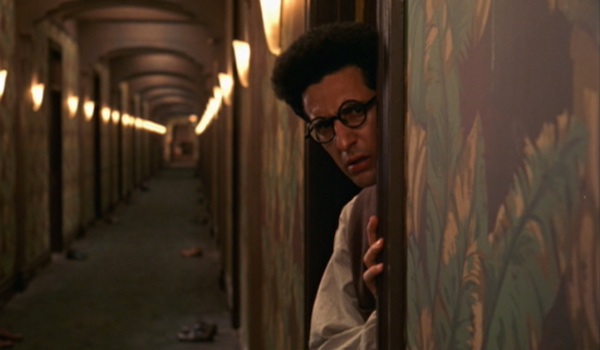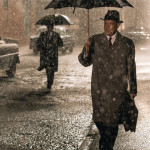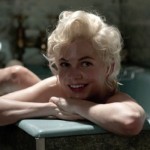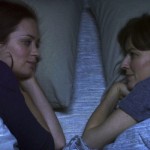Barton Fink Review
Posted on January 9, 2011 By John Gilpatrick 1990s, Movie Reviews
Until watching Barton Fink, I honestly thought the Coens could do no wrong. I had never seen a film of theirs that I didn’t at least like or admire on some level. This one I just didn’t get, to be honest. The film spins its wheels for nearly two hours and in the end, I was neither entertained nor enlightened. I didn’t think the film really said anything, and if it does, it’s not in a clear enough voice to make the viewer appreciate or understand its points. I know the directors march to the beat of their own drummer. That’s what I love about them. Barton Fink, however, is just a case of them being a little too far out there.
The titular character (played wonderfully by John Turturro) is a hotshot play writer early 1940s New York who wants so desperately to create a new stage culture in which the stories of the common man can thrive. After his latest play makes him a sought after talent, Fink decides he’ll need some money to achieve his dream, so he packs up and heads to Hollywood to write pictures for studio head honcho Jack Lipnick (Michael Lerner). After checking into the creepy and bizarre Hotel Earle, he develops a serious case of writer’s block, and even the crazy stories and experiences of a trio of real characters—new neighbor and insurance salesman Charlie (John Goodman), alcoholic writer W.P. Mayhew (John Mahoney), and Mayhew’s seductive secretary Audrey (Judy Davis)—can help him. But that’s only the tip of the iceberg. As his deadline grows closer, Fink starts to panic, and soon, he’s dragged into a web of sex, lies, and murder.
The set up for Barton Fink is great. I was hooked while Barton was checking in to the Earle and first sitting down to write his screenplay. Once Charlie, W.P., and company come aboard, things start to derail. Still, it’s not a bad ride—just a little eccentric. The film takes a very sharp turn near the halfway point, however, and that’s when it just goes off the rails. You can’t miss it, and for some of you, this twist will be welcome. Me? I found it shocking, but it leads into some real confounding stuff that just didn’t sit well with me.
Despite my objections with the plot and the Coens’ presentation of it, I loved the film’s acting, for the most part. John Turturro is terrific as Barton. The look on his face consistently cracked me up. He’s incredibly neurotic, but there’s something about his naiveté and simple-mindedness that made me feel for him, even when I really found myself lost in the action of the film. Michael Lerner was nominated for an Oscar for his brief, but scene-stealing, work. Steve Buscemi gives Norman Bates a run for his money as the creepiest hotel employee in film history. The only weak link in the cast from my vantage point is John Goodman, a Coen regular, who just goes way too over-the-top on this occasion. Subtlety has never been a very Coen-esque characteristic, but here, with this character, it’s a real problem.
I wish I could outline my frustration with this film more clearly, but it’s simply a matter of not really connecting with the material. There’s little wrong with the way Barton Fink is made—and the acting is actually great. But I didn’t care about these characters and their plight at all, I didn’t understand what the point was, and I found moments, including the conclusion, to be painfully over-the-top. Really, it’s more disappointing than anything. The Coens’ are two of the most consistently reliable directors of their generation, and until Barton Fink, I considered their track record perfect. But I guess everyone is allowed a misstep once in a while.
1991, 2 Stars, Barton Fink, Carter Burwell, Ethan Coen, Joel Coen, John Goodman, John Mahoney, John Turturro, Jon Polito, Judy Davis, Michael Lerner, Nancy Haigh, Richard Hornung, Roger Deakins, Steve Buscemi, Tony Shalhoub
















